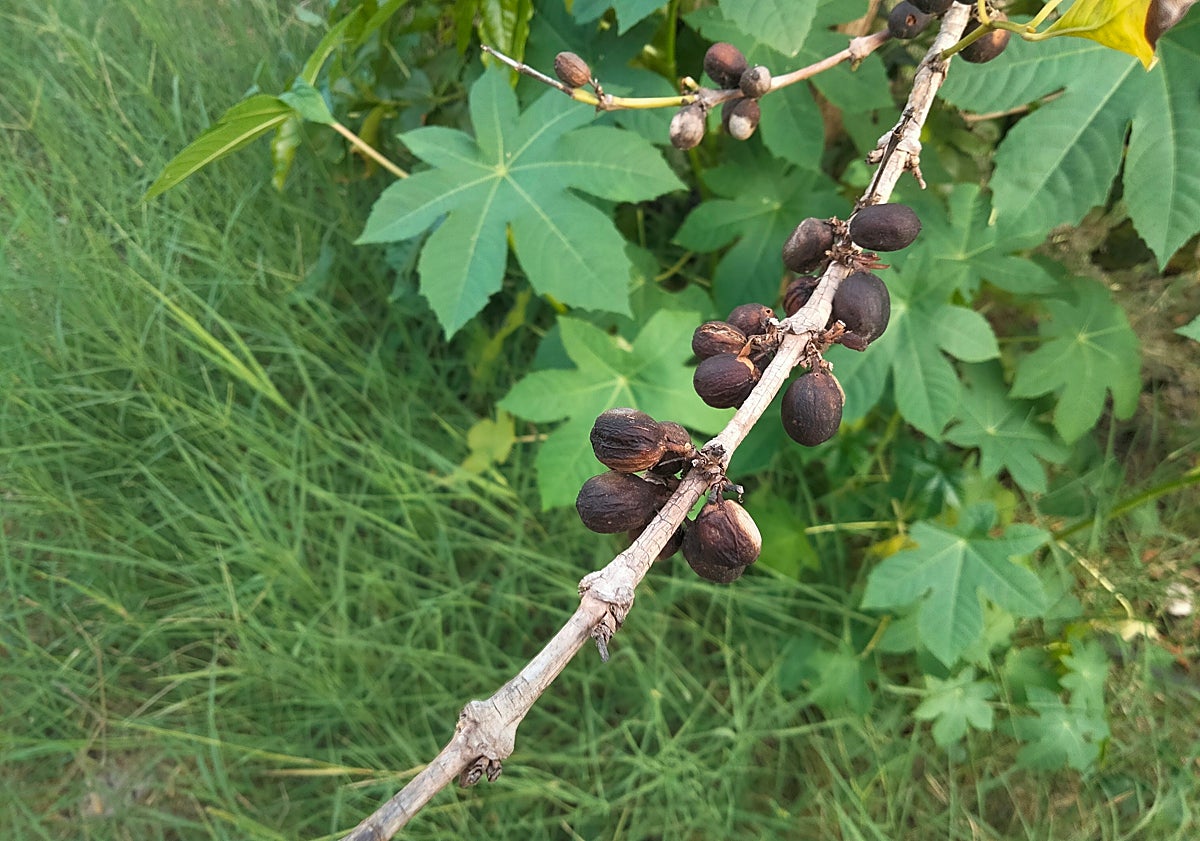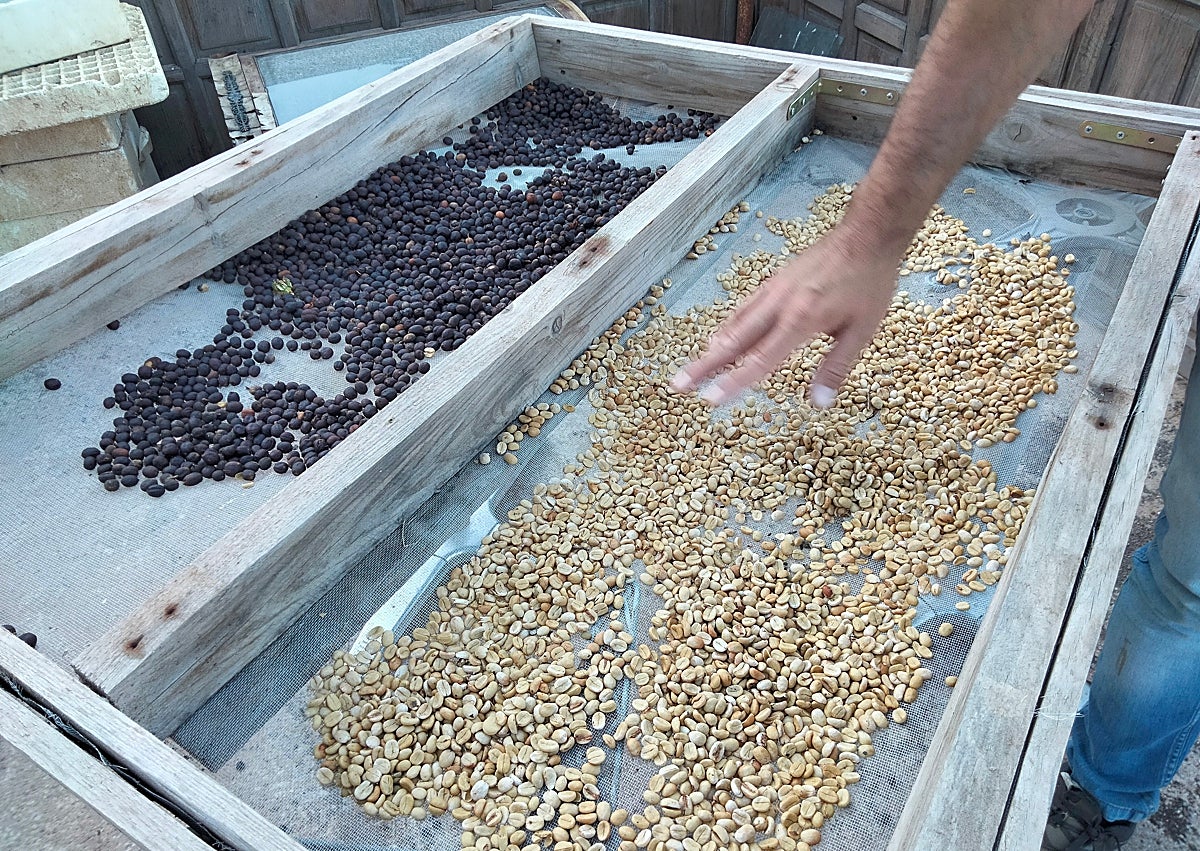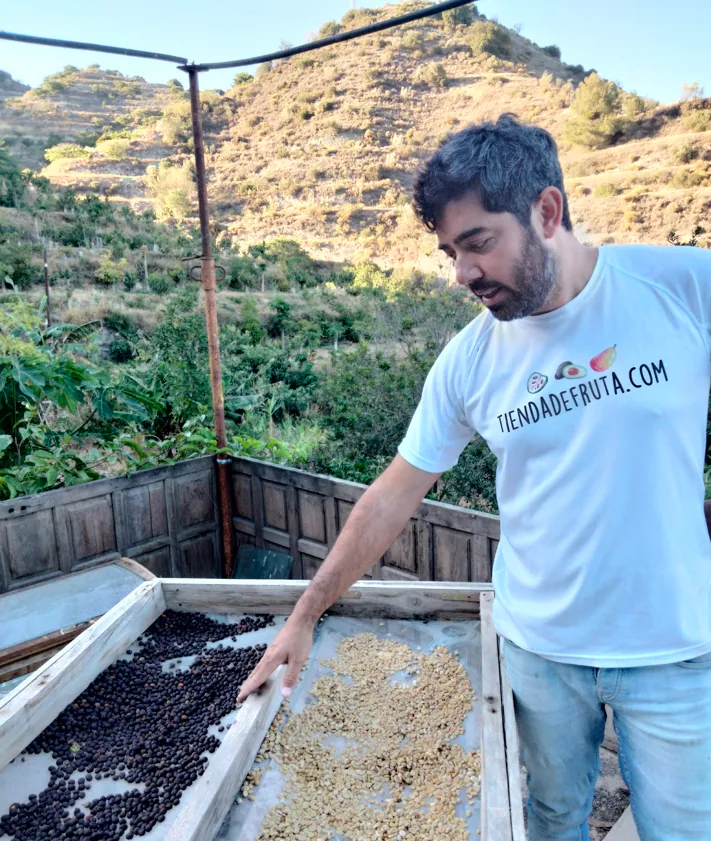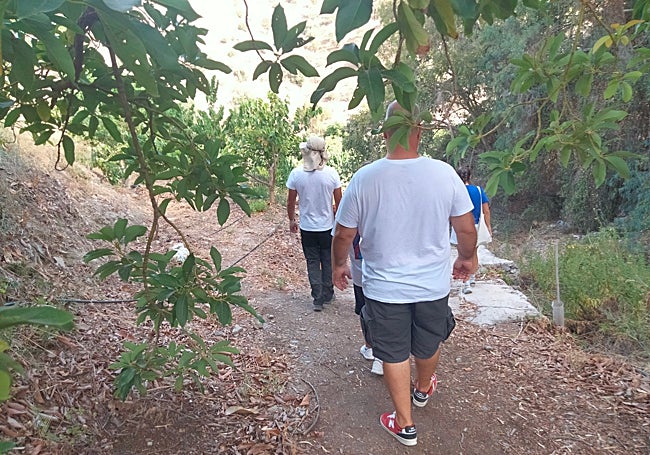1 October: International Coffee Day at Europe's only coffee plantation
Manuel Mateos from La Herradura is the first farmer to grow coffee in continental Europe; the most northern coffee plantation in the world is just a few kilometres from the Costa del Sol
Alekk M. Saanders
La Herradura
Friday, 29 September 2023, 15:49
The exact origin of International Coffee Day is unknown. It is reported that 40 years ago an event dedicated to coffee was first promoted in Japan by the All Japan Coffee Association. Later, various events have been held, called Coffee Day or National Coffee Day. Many of them took place around the end of September. In 2014, the International Coffee Organization took a decision to launch the first official International Coffee Day in Milan as part of Expo 2015.
A special micro-climate, good for coffee growing, can be found at the border between the Costa del Sol and the Costa Tropical
International Coffee Day serves as an opportunity to promote and celebrate coffee as a beverage. One farmer in La Herradura, Manuel Mateos, is promoting his own "speciality coffee".
A special micro-climate
According to this farmer, a special micro-climate that is good for coffee-growing can be found at the border between the Costa del Sol and the Costa Tropical, where the provinces of Malaga and Granada meet.
Manuel managed to find a small area where this plant native to Africa could survive and even flourish. This spot was on his farm - at the foot of a hill, on the banks of a river and under the shade of custard apple, mango and avocado trees.
"There is no other coffee plantation further north in the world"
Manuel Mateos
“The environment in the valley behind La Herradura is special. For example, many varieties of tropical fruit and plants grow here - from the more traditional avocados, custard apples and sugar cane, to more exotic caviar lime and black sapote. So it's not surprising that I tried to plant the most exotic one... coffee. It is unique, because there is no other coffee plantation further north in the world,” Manuel told SUR in English.



Manuel is passionate about agriculture, and has always had an adventurous soul. He studied languages and trained as an ice-cream maker, confectioner and coffee grower in Granada and Germany.
Several years ago, Manuel returned to his home village of La Herradura, where his family has a farmhouse that is more than 300 years old, surrounded by a few hectares of land.
In spite of doubts
His father, an experienced farmer, was dubious about growing coffee. However, Manuel embarked on the adventure of a lifetime: to become the first farmer to grow coffee in continental Europe.
“My training as a barista and passion for coffee have led me to cultivate coffee where it is theoretically not possible. I decided to plant coffee because I was interested in having my own coffee beans in my coffee shop. My father planted mangoes and avocados in 1975, and when he went to ask the government for help, they laughed and said it was impossible. When I told my father that I wanted to plant coffee, he laughed a lot and had his doubts but, I guess he knew it would work,” Manuel said.
Manuel planted small coffee trees and they have already borne fruit
Manuel took the chance. He planted small coffee trees and they have already borne fruit. Last year the Herradura farmer collected the red fruits, known as coffee cherries, or berries, one by one to dry them manually.
“Separating the coffee cherry's flesh and the skin from the coffee beans is one of the most crucial aspects of farming coffee. I use a natural drying process, the most old school way to process coffee. After picking the coffee cherries from the trees, I spread them out in thin layers to dry in the sun. It takes seven kilos of fresh beans to produce one kilo of roasted coffee. Once the cherries are properly dry, the skin and dried fruit flesh are removed mechanically and the green coffee is stored to be ready for exporting,” Manuel explained.
Sharing experiences
The natural process adds flavours to the coffee such as fruitiness and sweetness, regardless of variety and region. Natural coffees are often described to have red wine like flavours when compared to washed coffees.

Zoom

The cultivation of fruit on Manuel's farm is completely natural. The plants receive almost no human intervention. Respecting the environment, seeking biological balance and minimising human footprint are a priority for Manuel Mateos. He is glad to share his sustainable agricultural practices and biological balance.
The young, but experienced, farmer welcomes visitors to his farm to get to know a different type of agriculture. The private guided tour of his tropical garden and Europe's only coffee plantation is offered from Tuesday to Sunday, with times varying in both the warmer and cooler seasons.
During this "tropical journey", Manuel lets people touch the coffee berries and show the natural process of drying the fruit. He gives more information about "speciality coffee", often described as a gourmet coffee.
“True coffee lovers appreciate 'speciality coffee'. It is a term for the highest grade of coffee available, typically using single origin or single estate coffee. In 1974, Erna Knutsen used 'speciaity coffee' in an issue of Tea & Coffee Trade Journal to describe beans of the best flavour. This high-quality coffee has the most distinguished flavours, grown and harvested under ideal conditions. Sourced from specific terroirs, they are usually available in small quantities,” Manuel explains to his visitors.
A small pack of the local 100% Andalusian coffee, or rather, the coffee specially ground and prepared on the farm, can be taken home at the end of the tour to complete the delicious experience.
